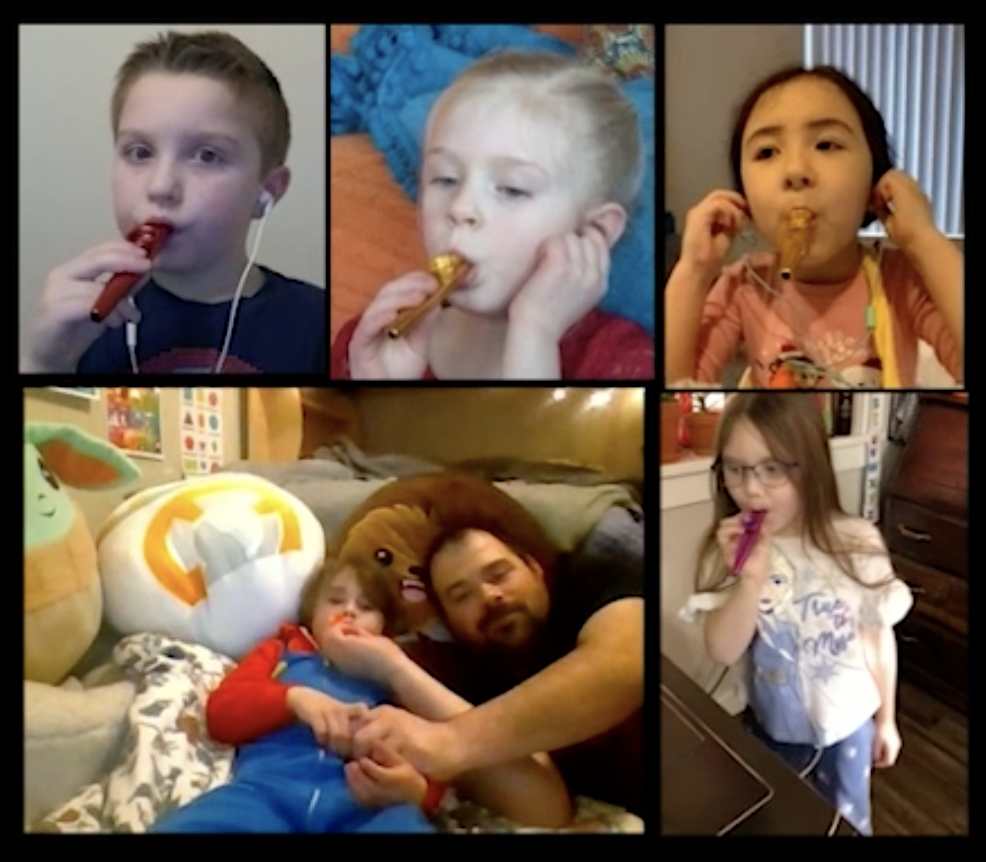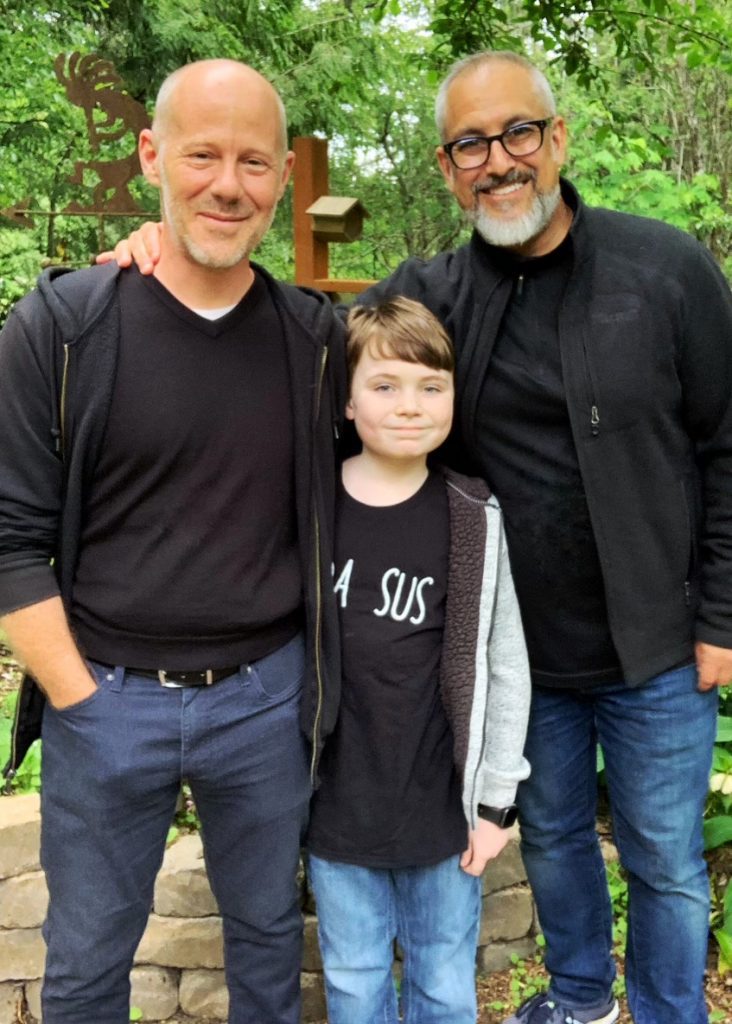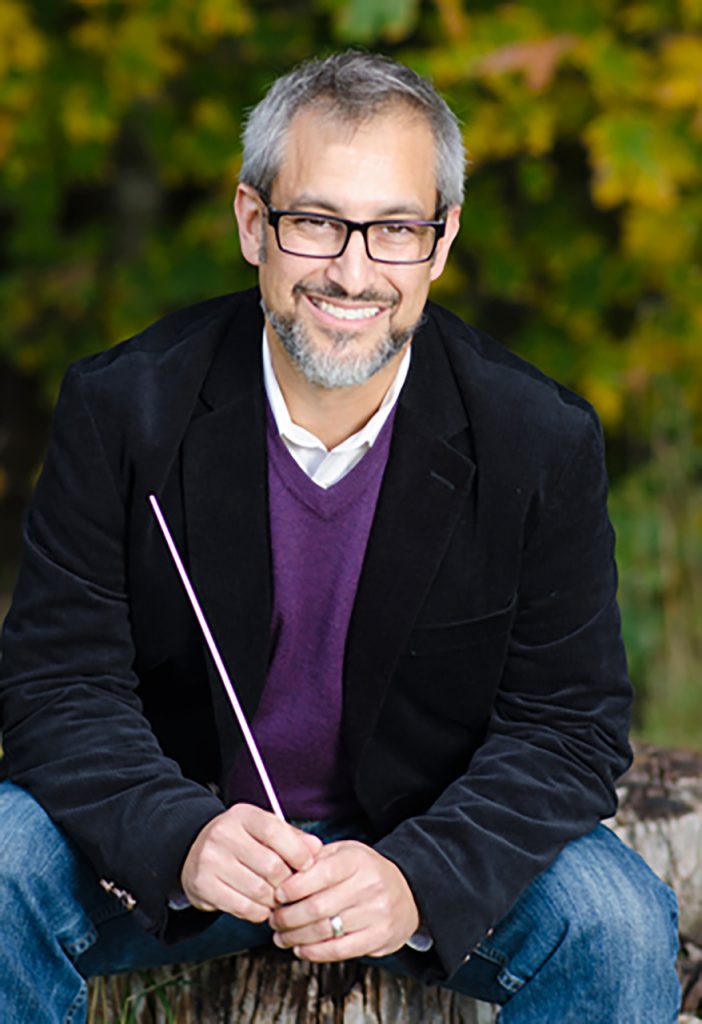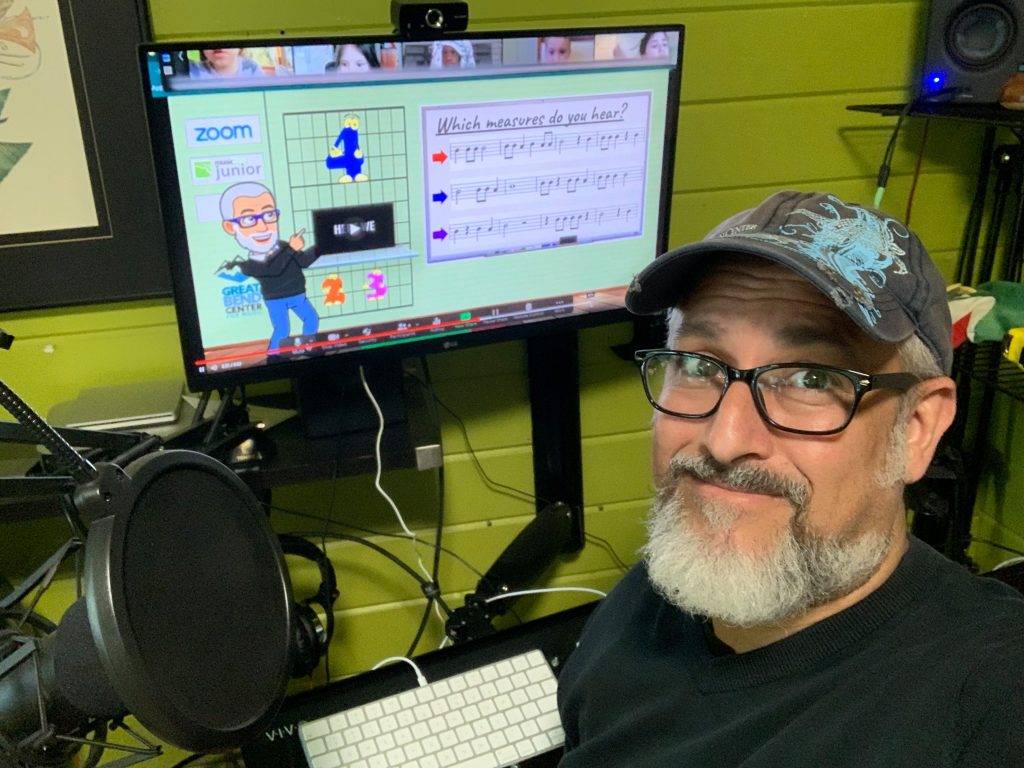Matthew Melendez, executive director of the Great Bend Center for Music in Union, is best known as a celebrated choral conductor. The center’s Great Bend Chorale, which is open to everyone with no audition required, has performed at Carnegie Hall and taken second place in a prestigious national competition.
But what Melendez is working on is much bigger than simply making beautiful music. “For me, it’s about how singing together creates community, about how making music together and making art together create community,” he said. “That is where I get really excited.”
This fall, Great Bend Center is offering a free choral program for teens and adults, free music education programs for young children and classes for students in grades 4-8 and adults — all online due to the rising number of COVID-19 cases.
The need to make and teach music online, though it seemed almost insurmountable during the pandemic’s first wave, allowed Melendez to make more progress on his goals to use music to bring people together, accelerate children’s learning and development and boost the local economy. “I have a lot to be grateful for in terms of the center focusing on non-choral things and getting out from the shadow of the choir’s success,” he told OLY ARTS. “These broader goals are what we’re really about. The choir is just one aspect.”
Over the past year and a half, Melendez devoted much of his attention to working online with children ages 2-7. What he discovered was that the online program worked perfectly for that age group. “Zoom is so great with the little ones,” he said. “They don’t know any different. They’re totally engaged.”

The teacher was just as engaged as his pupils. “The way to survive a pandemic in isolation is to sing ‘If You’re Happy and You Know It’ with a bunch of 5-year-olds on Zoom a couple of times a day,” he said. “It’s just awesome sauce.”
So much does Melendez value what virtual learning can do that even before the resurgence of COVID cases that halted the center’s in-person plans, the early childhood programs were slated to remain virtual and the choral program was planned as a hybrid.
While nothing replaces singing together, Melendez noted, singers can learn some skills more easily online and even achieve more than they could in person. One example: a version of The Bee Gees’ “How Deep Is Your Love?” put together from recordings the singers — including Melendez himself — made at home. “They had to hold those staggered energies and manage those long lines without losing intonation,” he said. “In person, it would have been difficult for them to hold together, but in a virtual environment, they’re only hearing themselves. They’re only working with their own part. I was miserable about that a year ago, but what I discovered is that I love what I can teach online about breath and line and articulation.”
The power of online learning is a recent discovery, of course, but Melendez researched music’s many powers while earning master’s and doctoral degrees at the University of Washington. While earning his master’s degree, awarded in 2006, he researched the impact of cultural tourism on rural economies. As part of the doctorate in conducting choral music, which he completed in 2018, he looked at magnetic resonance images to discover what happens in people’s brains when they sing.
The academic study confirmed what he’d already experienced: People connect and thrive and grow through music. They feel what brings them together rather than what divides them. He’s seen chorus members on opposite sides of the political spectrum find common ground as they learned music and laughed together. It was only weeks later that they found out what separated them. “At that point, it didn’t matter,” Melendez said. “I was like, ‘Wow. They are seeing each other without the labels first and then the labels don’t matter.’

“Group singing has a number of really magical cognitive and emotional benefits,” he added. “It’s fascinating.” He plans to do applied research at Great Bend as well as continuing and expanding his music programs for all ages. The early childhood program has already expanded to include children from four time zones, and one of the center’s new fall offerings is Music for Video Games, targeted at children in fourth through eighth grades.
While he focuses on the way music connects people, Melendez himself plays a big role in building community, said Heidi Nelson, who’s been singing with Melendez since 2010. “A lot of us in the choir don’t have a music background,” she said. “We accept everybody. Matthew knows how to put things in terms that somebody who does not have a music background can understand. He believes in everybody. He believes that we can do it.”
When choral rehearsals happened in person, Nelson traveled 45 minutes each way from Olympia for weekly practices. “I’m willing to drive because of the kind of group Matthew has helped create,” she said. “There are people from all walks — people I would never have met. It’s an accepting group where people can come and be who they are.”
“There are many people who can cast a wide and grand vision, and there are others who get things accomplished,” said Miceal Carnahan, treasurer of Great Bend Center for Music. “Matthew is one of those rare individuals who excels at both, always with grace, humility, care and compassion for those around him, never demanding and always encouraging.”

Long before he had a vision for changing the world, Melendez simply loved music. He grew up playing piano and didn’t get interested in choral singing until he was in college. “When I went to college, I missed playing the piano,” he said. “I discovered at the end of my first semester that if I auditioned for the choir, I could get access to a practice room and a piano. I didn’t really care about the choir. I just wanted access to a piano, and I didn’t want to sign up for piano lessons, so I auditioned and got in.”
After that serendipitous start, he found that he loved to sing and had a gift for it but didn’t immediately make music his life’s work. Rather, he sang off and on, pursuing music for fun while working in marketing, mostly for technology companies.
It wasn’t until years later that all the notes came together in harmony. In the late ’90s, he moved to Union with his husband, Eric Blegen, and realized he’d found the place he wanted to stay. The next question was what he would do there. “Nobody needed a vice president of marketing here,” he said. “And nobody needed a tenor here. It took me a couple of years to find my feet.”
Melendez spent some time considering what Union and Mason County did need, and the answer he came to was this: an organization that would build and strengthen community. That led him back to music and its power to make a difference. “North America needs an institute for applied research in music,” he said. “I’m not the only one doing this kind of research, but how does this research end up in the hands of county commissioners and leaders who can make a difference? There’s nobody doing that work in North America, and this is such a perfect community to do this.”

